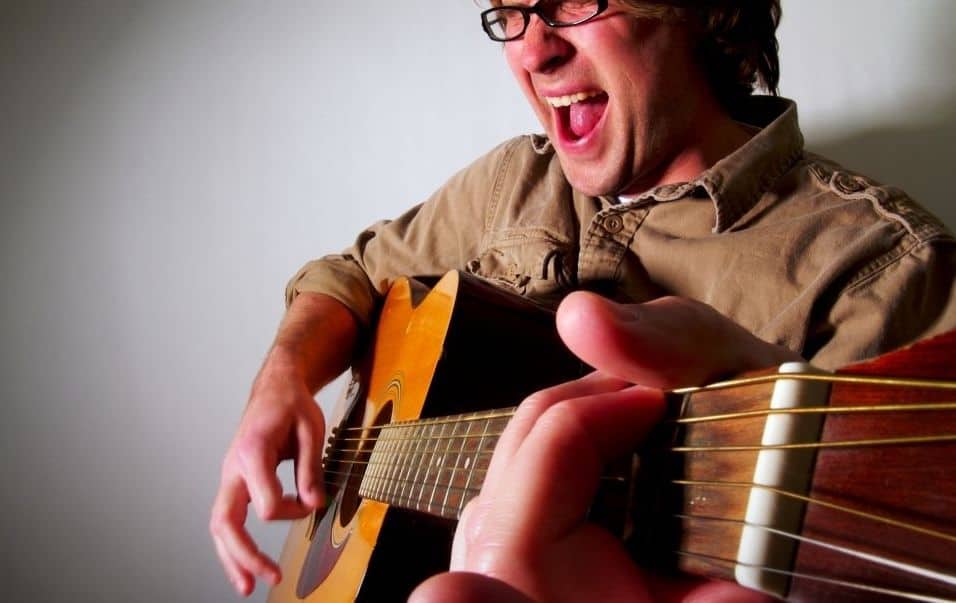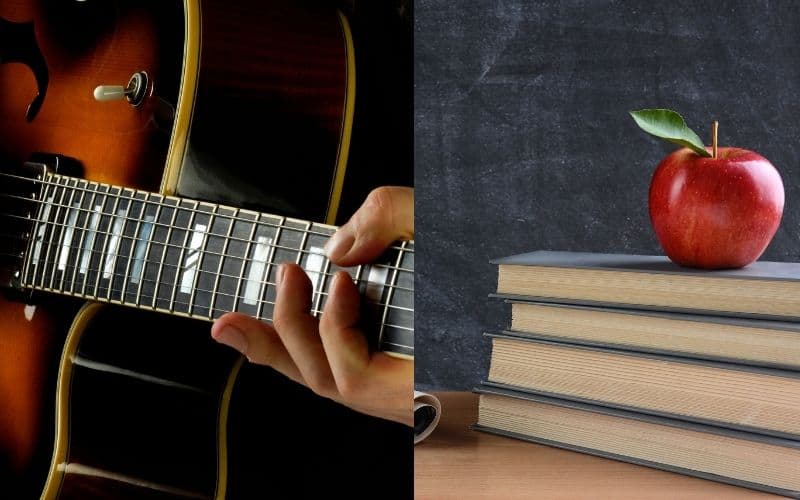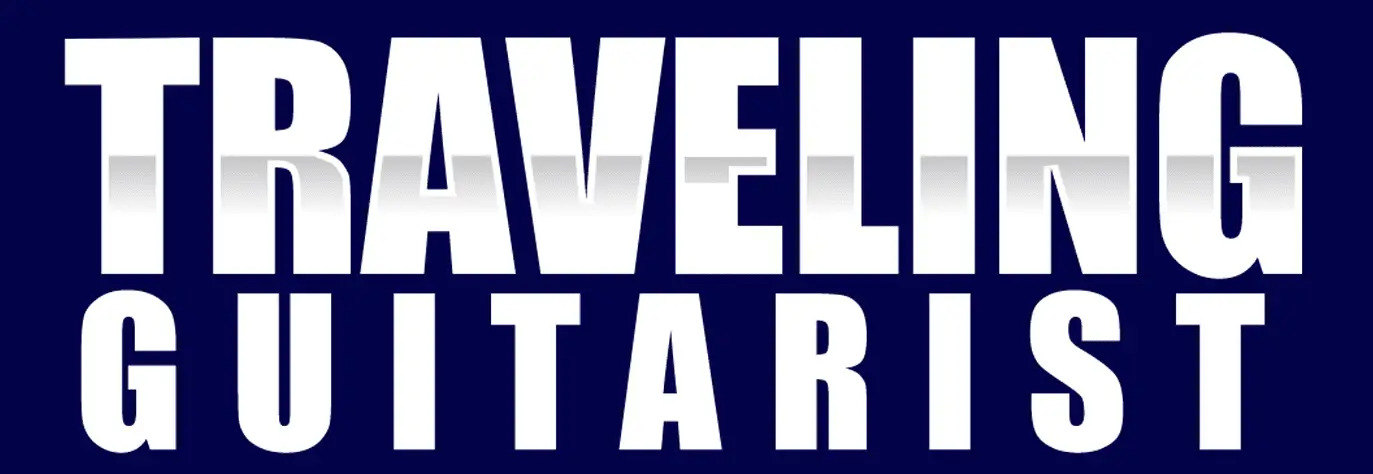One of the things about playing music that makes it special is that there is no limit to what you can learn. People spend their entire lives just mastering a handful of techniques, maybe even just one technique, oftentimes at the sacrifice of other skills.
Explained in another way, learning about the guitar, specifically, is something that you could do your whole life, and this is one of the reasons why many accomplished players still take lessons after years and years.
You only need about 6 months to a year of lessons to learn the fundamentals of playing the guitar, however, even the best players have a teacher or a mentor long after they’ve learned the fundamentals of the instrument. The idea behind this is to learn everything you can to make you a better player.
In other words, there is no limit to how many lessons a player should get. You could spend 6 months to a year in the beginning stages to learn how to play the instrument, but after a certain point, you may even decide to go back to lessons because of all of the things that you can learn about playing the guitar. In fact, this is something that I’m also in the process of doing via not only in-person lessons but also online programs like JamPlay.
Why There is No Limit to How Many Lessons You Should Get
1) You Could Spend a Decade on One Technique

The guitar, like many other instruments, is a tool of self-expression and it’s one of the reasons why they’re called instruments. It’s another word for “tool”; it’s a way of getting things done and a way of communicating a message.
Due to an instrument’s versatility, there are literally hundreds or even thousands of ways that a player can use it, including techniques like economy picking, sweep picking, vibratos bends, pinch harmonics, and more.
Certain aspects will remain the same, of course, but the subtleties can be much different depending on the person.
Some people might work on one aspect for years, like sweep picking, for example. It’s one of the reasons why I recommend lessons so much (my article). Michael Angel Batio is probably one of the greatest examples of a virtuosic sweep-picker, and his videos on YouTube have been extremely popular for a long time.
Whether you’re into this style of music or not, a person has to appreciate the level of commitment that goes into learning a technique at this level.
Other more modern players who use this technique and who do it well includes Jason Richardson and Andy James, among a whole slew of great players.
This concept extends to many other aspects of the instrument as well, including something as simple as singing and playing the guitar which is also something I’ve recently taken up.

Singing and playing the guitar is another skill that could take a solid year to learn how to do sufficiently, or to the point where you could perform some of the more challenging songs.
There are nuances and subtleties that experts in your field have spent years of their time working on and mastering, which is one of the reasons why I always recommend studying.
This same principle of the student/master is why MMA fighters and other professional athletes all have coaches & trainers for one specific thing. It’s not uncommon – in fact, it’s the norm – for someone like Conor MacGregor to have a boxing coach, a jiu-jitsu expert, a strength and conditioning coach, and many other people who help get them to where they need to be competitive.
Michael Phelps and other famous athletes are the exact same way. Nobody who performs at that level does it without a coach. This is one of the main reasons why it’s a great idea to continue in your studies of the instrument long after you’ve first figured out how to play it.
A teacher will speed up your learning curve and get you to the place where you want to be much quicker and more efficiently as well, assuming you ever would’ve gotten there in the first place.
And by that, I mean that the phrase, “speed up your learning curve,” presupposes you ever would’ve made it to your goals in the first place, which is an assumption that’s not necessarily a reflection of the truth.
Explained another way, there’s a good chance that if you don’t make the right actions, you’ll never get to where you want to be. You’ll just spend years and years of your life moping around and never getting anything done the way you could’ve, had you just taken the right action and gotten someone to help you.
There’s no excuse, and while learning online isn’t the best, it’s certainly a great way to supplement your education as I’ve explained before.
2) You Could Also Study Applied Music Theory

Music theory is a topic that scares a lot of people for some reason, even though it’s not overly complicated or intimidating once you’ve grown accustomed to the very basics of it.
There are a lot of people out there who are really well-versed in theory and they could teach you everything they know, including how to actually apply these concepts to the instrument in question.
One great example of this is Rick Beato, who has one of the most popular music channels on YouTube.
Rick’s channel now has over 2 million subscribers and it’s not hard to understand why. There are so many useful principles and ideas that he teaches – many of which apply directly to the guitar – that you could spend hours and hours watching his tutorials and then applying those lessons to your instrument.
A Personal Story About Guitar Lessons

I took jazz guitar lessons from when I was 12 until I was 18 years old, and I never really took the things that I learned that seriously at the time. Now that I’m 31 years old, I honestly wish that I would’ve practiced the things my teacher told me to because a lot of these things I am practicing now or re-learning as an adult.
I was too arrogant at the time to understand that there was a reason why my teacher was trying to educate me about certain things at the time.
As I mentioned in passing earlier, I’m currently in the middle of finding a new guitar teacher because I’ve hit so many roadblocks in my playing over the last few years, and I used to think that I was going to figure it out on my own, but after fumbling around for years by myself, it’s time to understand that I won’t get there on my own, which brings me to my next point.
You Won’t Accomplish Anything Substantial by Yourself – Including on the Guitar

There’s no doubt that you have to practice a lot of techniques and skills on your own, but if you’re not working with other players, musicians, and people, you’re missing out on one of the most crucial parts of music – other humans.
The whole point of music is to make sounds that other people like and enjoy, rather than spending all of your time hiding out in your basement practicing scales along to a metronome.
Thinking that you can master an instrument without help from others is really not a good way to go about it, and you’ll wind up wishing that you would’ve worked with other people years ago. This is a lesson that I learned in the gym after I hired a personal trainer.
I stumbled around for years trying to do things on my own, and while I made an incredible amount of progress by myself, I could’ve tripled that progress, or maybe even more.
I was able to bust through plateaus that I was fighting with for years just after 6 months of training with him, and I can’t see what one full year or even 2 years is going to do to my results. With all that in mind, there are still things that you can study on your own – ON TOP of what you’re learning with a dedicated teacher.
For example, I loved Mark Sarnecki’s The Complete Elementary Rudiments.

 Written By :
Written By :